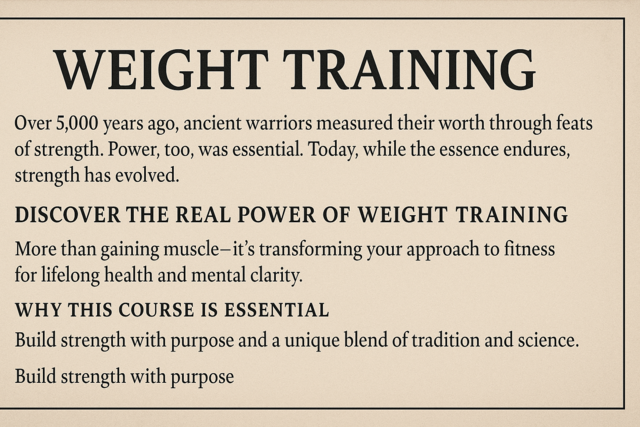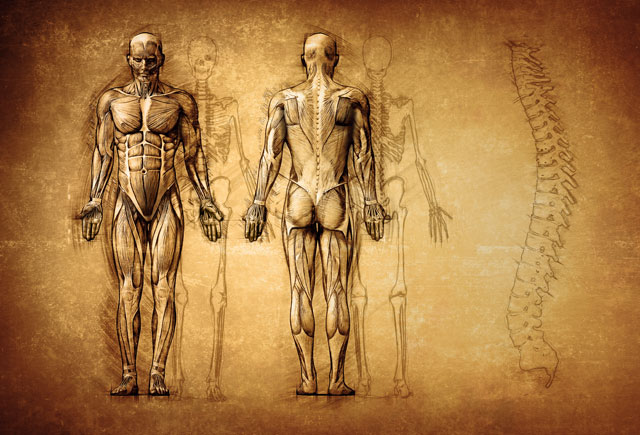Peer pressure is a common part of growing up. Humans are social creatures and as such we are greatly influenced by social norms, as well as by the goading and expectations of our peers. At times, peer pressure can prompt healthy competition or achievement of a worthy goal. However, pressure from friends can often cause you to engage in behavior that you may not have thought of on you own. Depending on the actions, you could potentially cause yourself harm mentally, physically, and emotionally.
Below are three major ways that peer pressure commonly displays itself, along with the potential negative repercussions.
Prompting from friends to try a cigarette, alcohol, or drugs. Succumbing to this pressure cannot only have immediate health effects, dizziness, impaired judgment and mental function, and damage to brain cells, but it can also be the beginning of an addiction, which may take years to break. Most smokers admit to taking up the habit in their early teens to "appear cool," but have desperately been trying to quit most of their adult life. Long term use of intoxicants can cause liver damage, lung cancer, mouth and throat cancer, irreversible brain cell damage, heart disease, and a host of other ailments.
Also, addiction to alcohol or drugs can drastically change someone's personality and ability to function in the world. When under the influence, or seeking a means to feed their addiction, many addicts will do things that would shock those who knew them prior to their addiction. This can include theft, engaging in violence, abandoning children or partners, squandering money, and losing a job. When you are under the influence of a controlled substance, it is impossible to control your actions and people often engage in behavior that they are extremely regretful for when they have a lucid moment.
Engaging in risky sexual behavior. In this age of music videos and reality television, young people are increasingly engaging in risky sexual behavior. Unfortunately, some feel that if they do not perform certain acts, that they will lose the affection and attention of their boyfriend or girlfriend or become unpopular. In other situations, people may be acting out something that they saw on television, described in a song, or related to them by a friend. In any event, it seems that the stimuli for unbridled sexual behavior has dramatically increased, however it is apparent that teens do not understand the enormous potential repercussions of unprotected and risky sexual activity.
so important to make wise choices, as often the events of one day can reverberate throughout the rest of your life.
Distorted body image is another area in which peer pressure can come to bear. One of the major emotional needs for young adults is to feel as if they fit in, and this often manifests as an unhealthy view of their bodies and appearance. Teens and young adults are constantly looking to mold themselves into the perception of beauty and fitness decreed by society and the more popular amongst their peers. However, in addition to being unrealistic, because each person is an individual, this is often a moving target with trends coming and going several times a year. Instead of looking to the world to define who you are, it is important to take the time to develop your own sense of style and expression.
Unfortunately, the media does not help what is otherwise a normal exploration and growth phase by constantly broadcasting images that not only do not present the norm, but that are highly digitally retouched to the point that they only bear a passing resemblance to the original model. In recent years, there have been numerous situations in which it was reported that a model was significantly retouched after a shoot, including manipulating body parts like the thighs, waist, and neck to make her appear noticeably slimmer. This presents an unrealistic image of beauty, which unfortunately many girls and women strive to attain.
Peer pressure has always been a factor in the lives of young adults. However, there are a few characteristics that you can cultivate that will aid you in navigating the trials of young adulthood and come out relatively unscathed.
Cultivate high self esteem. Someone who feels confident about themselves, their appearance and abilities is less likely to fall victim to peer pressure. Everyone is unique and has particular features, skills, and natural abilities that make them special. Always remember that when you feel the urge to blend in.
Develop goals as a means to keep you focused. When you have clearly defined goals, such as entering a specific college, attaining a sports title, or perhaps writing a book, you focus on that goal and are less likely to be distracted by the constant noise of life. Your efforts will be directed towards achieving this goal and the rewards that come with it. Young people who focus on working towards something significant are often those who will be leaders in their specific areas of expertise as adults.
Maintain your own moral code and when out with friends or when meeting someone new, make a commitment not to violate it. Only you know what type of activities and experiences you feel comfortable with. Get clear on what those are and if someone crosses the boundaries, tell them so in a straightforward and confident manner. Also, if your friends are going somewhere or doing something that you don't feel is safe, say so. Your commitment to your beliefs may end up saving not just yourself, but your friends from danger.
Engage in sports or other organized activity as a way to cultivate a positive sense of belonging. There are many benefits that come from belonging to such a group, including team camaraderie, learning good sportsmanship, teamwork, mentorship of coaches, handling defeat gracefully, striving towards a goal, and many others. Many people have credited youth sports and other organized group activities for keeping them focused and out of trouble as teens.
Section 2. Dealing with Loss
Losing a loved one is a traumatic event at any age and can be especially devastating to a child or young adult. It is important to understand that death occurs as a natural extension of life and it is often impossible to predict or to prevent. Even though loss is often unavoidable, it does not come without pain that must be acknowledged and resolved in order to move forward in life.
"Grieving" is the technical term which describes the emotions and actions of a person after a loss. The grieving process usually consists of specific stages and depending on the person and level of trauma that the loss causes, the length of each stage will vary. Some people are able to work through the stages relatively quickly and others require more time and possibly intervention to assist them.
Again, while it is perfectly normal to grieve, allowing your sorrow to reach an unhealthy level can be dangerous and you should seek assistance to help you deal with your emotions.
Conclusion
Mental and Emotional Health. Bullying
Objectives
Section 1. Bullying
Cyber bullying is any act of aggression that is carried out through chat, email, forums, and other forms. The increased popularity of the internet as a social hangout has led to a huge uptick in reported cases of bullying. Also, the perceived anonymity of the internet provides some with a feeling of being invincible and able to lash out at others without repercussion. Cyber bullying can range from someone leaving disparaging or inflammatory comments about someone on a blog or social networking site, or sending threatening or disparaging emails to an individual, their workplace, family, or friends.
Some of the reasons for bullying include:
History of being bullied. Often you will find that the aggressor has himself been bullied at some point in his life. This can cause him to be aggressive to others as a way of reclaiming his strength or dealing with the feelings of anger caused by being bullied. When questioned closely, a bully may become extremely emotional, even tearful, when recounting how they themselves were or are bullied. While this is by no means a justification for causing harm to others, it can lead to helping the individual deal with the past trauma and often resolves the issue. This can be initiated by a trusted teacher, coach, or relative.
Need for power. For some bullies, a need to exert power over others drives their negative actions. This often comes from a sense of emptiness or lack of control on some aspect of their life. To mask this void and present an outward show of strength, they seek to exert control over others. This type of bully is common not just in school or neighborhood settings, but in corporations and sports teams as well. As an adult, this may manifest itself as a bully purposely denying someone a well earned promotion or continuously penalizing them for any perceived infraction or deficiency in their work.
Abuse. Many people who suffer mental or physical abuse are unable to talk to anyone about their experiences out of fear or embarrassment. As a result, they are unable to get help and sympathy for what they are going through and this causes immense internal anguish and frustration. This frustration may be taken out on others as a temporary way to blot out the abuse or to make someone, anyone, pay for their pain. The good thing is that this type of bullying can usually be remedied with counseling and intervention to stop the abuse.
Preemptive bullying. In some cases a person who feels self-conscious or worried about being bullied by others, will preempt that by becoming the bully himself. This can occur with someone who is very poor, has a learning disability, a physical deformity, or no conventional family. In this instance, the person fears being bullied and ridiculed so much, that they develop a persona that is known for aggression, thus curtailing any overt aggression against them.
~Check In: Section 1.
Have you ever been bullied or been the aggressor in bullying someone else?
If you were bullied, how did it make you feel and how did you handle it?
If you were the bully, what do you think your motivations were and how might you work to resolve the issue or better channel your anger?
If you or someone you know is being bullied in school, on the job, or in any other setting it can range from being uncomfortable, to being downright scary. Some bullies stick to emotional or psychological attacks, while others threaten or enact physical harm. In any form, bullying can have long lasting detrimental effects on a person's emotional and mental state, their ability to trust others, interact socially, and develop a positive self image. In extreme cases, bullying has even led to teens and young adults taking their own lives. If you are someone who bullies others, realize how harmful it is and stop now. If you are being bullied, there is help available.
Below are some solutions for dealing with bullies.
- Know that it is NOT your fault that you have been singled out for attention and abuse by a bully. A bully usually lashes out to cover up their own insecurities and emotional trauma. They have the problem, not you.
- Speak to your parents or a trusted relative or a family friend about the bullying. Try to get them to connect with the parents of the bully in the hopes of ironing out your differences out of sight of your peers. Often, when privately confronted about their behavior, a bully may relent.
- Report the bullying to school authorities and request intervention from a school counselor, which may remedy the situation. It is also important to have the bullying on record with the school, so that if things escalate, there is a clear trail of evidence of the abuse and the attempts to seek help. If the bullying occurs in a professional setting, report it to the Human Resources Department, along with any documentation to support your claims, including emails, voicemails, or eyewitness accounts.
- If you fail to achieve resolution by the means listed above and the person continues to be aggressive, it may be wise to avoid areas and situations that you know will bring you together. This could mean taking a different route home from school, or hanging out at a different mall. Also, moving in groups and ensuring that you are not alone and able to be victimized, may help. While this is not the perfect solution, it buys time until you can figure out how to resolve the situation long term, hopefully with the aid of trusted adults and peers.
- If you are a victim of frequent bullying, especially physical in nature, it may help to take a class in self defense. Often bullies pick on those they perceive to be weaker than them. For all of their bravado, most bullies would never attempt to bully someone who they thought could give them a fair fight. If you are able to confidently defend yourself from a physical attack, the bully will likely leave you alone going forward.
~Check In: Section 2.
Have you successfully resolved a bullying situation? What means did you use?
What message would you want to give to bullies about how theirbehavior affects others?































